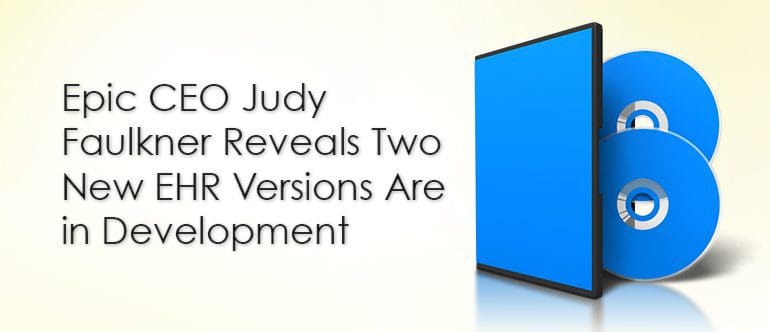Call us toll-free: 800-878-7828 — Monday - Friday — 8AM - 5PM EST

By Bernie Monegain for Healthcare IT News
The new versions will provide pathways for providers who don’t need the full version of Epic.
What a difference one year can make. In the world of Epic founder and CEO Judy Faulkner, where creating new technology meets with a delight for words, 2016 was a productive and rewarding year.
How so?
“We’re developing some really nifty new software,” she told Healthcare IT News on Sunday after attending the daylong CHIME-HIMSS CIO Forum at HIMSS17.
“There’s going to be three versions of Epic,” Faulkner said. “That’s what we’re working on now. There’s Epic Sonnet.” She pauses to note that an “epic” is a long poem – as in Homer’s Odyssey. As she put it, “even though we’re computer scientists, we can still be literate.”
Sonnet, she said, is the smaller poem. She describes Sonnet, which is now in development, as Epic technology with some of the features removed. It has a lower price point, and it can be just the right technology for organizations who don’t need the features of the full Epic EHR. Then, there’s yet another version, one between the full Epic EHR and the Sonnet. Both will provide a path toward upgrading to the full product.
“We’re finding that people need different things,” she said. “So, if you are a critical access hospital, you don’t need the full Epic. The two new versions of Epic in development can provide a pathway to adding all the features at a later time.
And then there’s “Caboodle” – the name of Epic’s data warehouse. “I don’t like boring words,” Faulkner said.
The trade name for Epic’s analytics suite is Cogito, from the Latin phrase “cogito ergo sum” – “I think, therefore I am.” In mid-2016, Epic renamed the data warehouse portion of the suite “Caboodle” and Faulkner is now working on Kit – as in Kit & Caboodle. “Kit is making everything very open,” Faulkner said.
Faulkner seems to relish her work and is buoyed by it. Is there any time when it becomes a grind?
“Some parts do,” she replied. “Sometimes what becomes a grind is not the work itself, but how long it takes and how much of my life it takes and how little I have for other things.”
However, there are rewards – for example, knowing that there are so many drug-to-drug interactions – a quarter million – averted through Epic system alerts.
She’s also pleased that Epic customers have done well financially, she said. Yes, Epic EHR installations are known to cost millions of dollars. But, Faulkner has done the math and created charts. Over the years 2004 to 2015, and across all healthcare organizations, she believes that Moody’s and Standard & Poor’s statistics demonstrate that Epic customers reaped profitability unsurpassed by clients who implemented her competitors’ EHRs.
For Faulkner, 2016 was a very good year, indeed. From June through December, family members from around the world visited her and her husband in Madison, she engaged in work she loved, and she was often inspired.
Who inspired her the most in the past year? It was Mona Hanna-Attisha, MD, the doctor who — with the help the Epic EHR at Hurley Medical Center in Flint —Michigan, discovered the extent of the Flint water crisis.
“If we did not have Epic, if we did not have EMRs, if we were still on paper, it would have taken forever to get these results,” Hanna-Attisha was quoted as saying.
